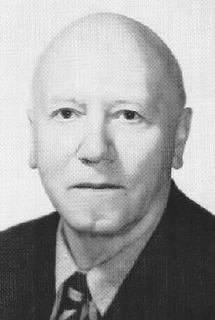A Quote by Kate Chopin
And Nature takes no account of moral consequences, of arbitrary conditions which we create, and which we feel obliged to maintain at any cost.
Related Quotes
Confusion conditions activity, which conditions consciousness, which conditions embodied personality, which conditions sensory experiences, which conditions impact, which conditions mood, which conditions craving, which conditions clinging, which conditions becoming, which conditions birth, which conditions aging and death.
We are working towards a shared vision of the future for health among all the world's people. A vision future in which we develop new ways of working together at global and national level. A vision which has poor people and poor communities at its centre. And a vision which focuses action on the causes and consequences of the health conditions that create and perpetuate poverty.
The denial of any distinction between foreseen and intended consequences, as far as responsibility is concerned, was not made by Sidgwick in developing any one 'method of ethics'; he made this important move on behalf of everybody and just on its own account; and I think it plausible to suggest that this move on the part of Sidgwick explains the difference between old-fashioned Utilitarianism and the consequentialism, as I name it, which marks him and every English academic moral philosopher since him.
A tension has always existed between the capitalist imperative to maximize efficiency at any cost and the moral imperatives of culture, which historically have served as a counterweight to the moral blindness of the market. This is another example of the cultural contradictions of capitalism - the tendency over time for the economic impulse to erode the moral underpinnings of society. Mercy toward the animals in our care is one such casualty.
The Church has been and now is unalterably opposed to gambling in any form whatever. It is opposed to any game of chance, occupation, or so-called business, which takes money from the person who may be possessed of it without giving value received in return. It is opposed to all practices the tendency of which is to encourage the spirit of reckless speculation, and particularly to that which tends to degrade or weaken the high moral standard which the members of the Church, and our community at large, have always maintained
It cannot be said too often that actions are good or bad in the light of consequences, and that a clear perception of consequences would control actions. That which increases the sum of human happiness is moral; and that which diminishes the sum of human happiness is immoral. . . . Blind, unreasoning obedience is the enemy of morality.
I would confide to you perhaps my secret profession of faith - which is ... which is ... that let us say and do what we please and can ... there is a natural inferiority of mind in women - of the intellect ... not by any means, of the moral nature - and that the history of Art and of genius testifies to this fact openly.
I shall no doubt be blamed by certain scientists, and, I am afraid, by some philosophers, for having taken serious account of the alleged facts which are investigated by Psychical Researchers. I am wholly impenitent about this. The scientists in question seem to me to confuse the Author of Nature with the Editor of Nature; or at any rate to suppose that there can be no productions of the former which would not be accepted for publication by the latter. And I see no reason to believe this.


































